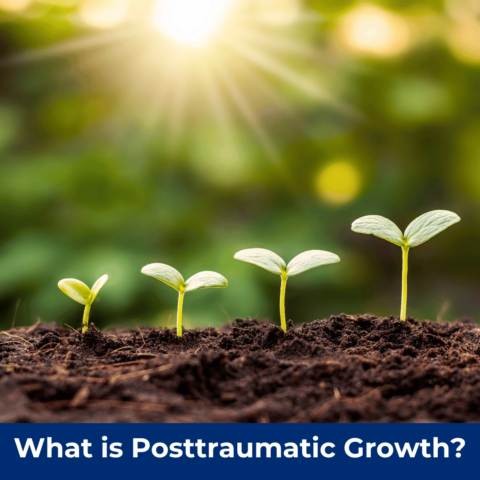
How does trauma affect decision making?
Trauma can have a profound impact on an individual’s decision-making abilities. When someone experiences trauma, it can alter their perception of the world, themselves, and

Unit 19 & 22A/247-255 Drummond St,
Carlton VIC 3053
Monday – Friday 9.00 am – 5.00 pm
Saturday 8.00 am – 5.00 pm
Phone: 03 9077 0122
Fax: 03 8669 4101
admin@ccp.net.au
Traumatic experiences can have serious and lasting effects upon a person’s mental health and wellbeing. Our clinicians are highly trained in effective treatments for trauma.
Posttraumatic stress disorder (PTSD) is a mental health condition which can occur after experiencing or witnessing a traumatic event. Our team are highly trained in treatments for PTSD and can help you with recovery.
Pregnancy is a time of enormous physical and emotional change. Our perinatal psychologists understand and can support you with the challenges associated with this life stage. We can also help following traumatic birth.
We are skilled in helping our clients through complex problems. Our trauma clinicians are highly trained and work with those experiencing trauma (PTSD) and ongoing harm from life changing events, while our perinatal psychologists are skilled at helping new parents. We also help clients through anxiety, depression and a range of other mental health concerns.
We are an accredited training provider of Cognitive Processing Therapy (CPT) for the treatment of posttraumatic stress disorder (PTSD). We have trained over 750 mental health clinicians around Australia. Our team of psychologists are all trained in Cognitive Processing Therapy, which is effective in treating trauma.
We help people with PTSD, anxiety & depression, as well as pregnant women and new parents, to improved relationships and wellbeing.
We all experience and make sense of life in our own unique way. The challenges that life presents can negatively affect a personl’s mental health in a variety of ways.
It can be helpful to see a psychologist if you are:
Many people are uncertain about what a clinical psychologist does and how their tole differs from other mental health professionals.
A clinical psychologist is a unversity trained professional who is registered with a national regulatory body, the Australian Health Practitioners Regulation Agency. Clinical psychologists require 8 years of training. they require 4 years of basic university training, a minimum of 2 years post graduate training and then a further 2 years of supervised practice following, via an internship program.
Yes, to practice as a clinical psychologist your therapist must adhere to a strict confidentiality policy in accordance with a professional code of ethics and the Australian Privacy Guidelines. What is disclosed in therapy sessions, as well as any correspondence relating to your sessions, remains confidential, unless you consent to it being shared with someone. We also adhere to strict protocols around maintaining the security of our data. However we may be obligated to disclose information to a third party if someones safety is at risk or a document is subpoenaed. Please ask for a copy of our Privacy Policy if you require any further details.
Should it be required we can write psychological reports for instances such as TAC, Work Cover, and court proceedings. These reports are charged separately, and in addition to our psychological consultations.
In the first session, your psychologist will focus on trying to understand your difficulties and how they are best treated. This will involve an assessment process in which you have the opportunity to reflect upon your experience. It will also include a series of questions from the clinical psychologist to help in understanding your current situation. Similarly, you may be aksed to fill out questionnaires.
The clinical psychologist will be seeking to understand what your difficulties are and what kind of therapeutic approaches are best suited to the difficulties you describe. They will discuss what kind of evidence-based therapy is known to work for what you have described to them. Subsequent sessions are usually on a regular bases and become less frequent as your difficulties are resolved.
You always retain the choice regarding how many sessions you need and you are not obliged to attend a minimum number. You are also free to decide the frequency of your counselling sessions, however it is advisable to make these decision in consultations with you clinical psychologist who can discuss with you and make recommendations based on their experience and with an understanding of what the evidence suggests.
If you have a Mental Health Care Plan from your Gp this will entitle you to Medicare rebates for up to 10 sessions. If you use all 10 sessions you can continue to see your psychologist at the private fee rates.
We understand that not everyone can come to see us during business hours, this is why our psychologists are available Monday to Friday 9am – 9pm, and Saturday 9am – 5pm.
You can find out more on our Fees page Click here…
You are free to stop seeing your therapist at any time. Just as you are free to start seeing your therapist again at any time.
As a professional, your clinical psychologist will b e open to your feedback and discussing with you why you may wish to end the therapy. They may discuss ideas with you and discuss why they recommend you continue. In an ideal situation this feedback can also become part of the work of therapy and can lead to important progress. We encourage you to have these discussions with your psychologist, rather than just dropping out of therapy.
At the Centre for Clinical Psychology we are also aware of the need for a good fit between you and the psychologist you are seeing. We are willing to assist you with this even if it means transfer to another psychologist or even and external referral. Your care is our priority.
You can find more answers to your questions on our FAQ Page

Trauma can have a profound impact on an individual’s decision-making abilities. When someone experiences trauma, it can alter their perception of the world, themselves, and

Attention-Deficit/Hyperactivity Disorder (ADHD) is a neurodevelopmental disorder commonly associated with difficulties in attention, hyperactivity, and impulsive behaviour. Recent research has delved into the intricate relationship

The phoenix rising from its ashes may be a fairy tale, but the belief that existential crises bear a transformative potential is deeply rooted within

Sleep issues are common throughout our lives. Most often they are transient difficulties that come and go uninvited. Sometimes, they are due to changes in
Our team of clinical psychologists are highly trained mental health professionals with a commitment to a high quality of care and evidence-based treatment. We work with our clients using treatment approaches which are based upon research and standards of best practice.
We acknowledge the Traditional Owners of the land where we work and live. We pay our respects to Elders past, present and emerging. We celebrate the stories, culture and traditions of Aboriginal and Torres Strait Islander Elders of all communities who also work and live on this land.
We are committed to creating an inclusive environment. We celebrate, value and include people of all backgrounds, genders, sexualities, cultures, bodies and abilities.
Centre for Clinical Psychology, Unit 19-22A/247-255 Drummond St, Carlton VIC 3053
Phone: 03 9077 0122
Fax: 03 8669 4101

© 2024 Centre for Clinicial Psychology. All Rights are Reserved.
